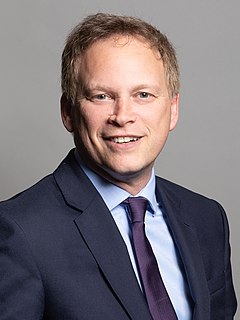A Quote by George Orwell
...in the negative part of Professor's Hayek's thesis there is a great deal of truth. It cannot be said too often - at any rate, it is not being said nearly often enough - that collectivism is not inherently democratic, but, on the contrary, gives to a tyrannical minority such powers as the Spanish Inquisitors never dreamt of.
Related Quotes
[What Hayek] does not see, or will not admit, [is] that a return to "free" competition means for the great mass of people a tyranny probably worse, because more irresponsible, than that of the State. The trouble with competitions is that somebody wins them. Professor Hayek denies that free capitalism necessarily leads to monopoly, but in practice that is where it has led, and since the vast majority of people would far rather have State regimentation than slumps and unemployment, the drift towards collectivism is bound to continue if popular opinion has any say in the matter.
I've noticed the Fair Folk often say 'perhaps' when there is a truth they want to hide," Clary said. "It keeps you from having to give a straight answer." "Perhaps so," said the Queen with an amused smile. "'Mayhap' is a good word too," Alec suggested. "Also 'perchance,'" Izzy said. "I see nothing wrong with 'maybe'," said Simon. "A little modern, but the gist of the idea comes across.
It is not given to man to know the whole Truth. His duty lies in living up to the truth as he sees it, and in doing so, to resort to the purest means, i.e., to non-violence. God alone knows absolute truth. Therefore, I have often said, Truth is God. It follows that man, a finite being, cannot know absolute truth. Nobody in this world possesses absolute truth. This is God's attribute alone. Relative truth is all we know. Therefore, we can only follow the truth as we see it. Such pursuit of truth cannot lead anyone astray.
You must not say that this cannot be, or that that is contrary to nature. You do not know what Nature is, or what she can do; and nobody knows; not even Sir Roderick Murchison, or Professor Huxley, or Mr. Darwin, or Professor Faraday, or Mr. Grove, or any other of the great men whom good boys are taught to respect. They are very wise men; and you must listen respectfully to all they say: but even if they should say, which I am sure they never would, 'That cannot exist. That is contrary to nature,' you must wait a little, and see; for perhaps even they may be wrong.
I feel engaged with young people in Pakistan. But that said, it's still a small minority that reads novels, literary fiction. But it isn't necessarily a small minority of the wealthy elite in the city of Lahore. It can often be and I often do meet at literary festivals students who've ridden a bus 12 hours from a very small town just to hear some of their favorite writers come and speak.
The fetish of the great university, of expensive colleges for young women, is too often simply a fetish. It is not based on a genuine desire for learning. Education today need not be sought at any great distance. It is largely compounded of two things, of a certain snobbishness on the part of parents, and of escape from home on the part of youth. And to those who must earn quickly it is often sheer waste of time. Very few colleges prepare their students for any special work.
He was talking about the sign that said 'THE COMPLICATED FUTILITY OF IGNORANCE.' 'All knew was that I didn't want my daughter or anybody's child to see a message that negative every time she comes into the library,' he said. 'And then I found out it was you who was responsible for it.' 'What's so negative about it?' I said. 'What could be a more negative word than "futility"?' he said. '"Ignorance,"' I said.
We did meet forty years ago. At that time we were both influenced by Whitman and I said, jokingly in part, 'I don't think anything can be done in Spanish, do you?' Neruda agreed, but we decided it was too late for us to write our verse in English. We'd have to make the best of a second-rate literature.






































